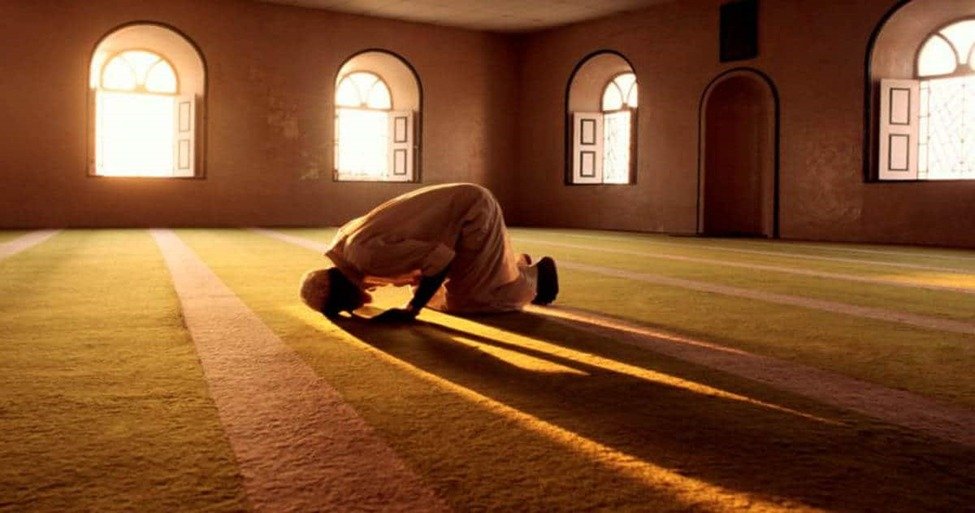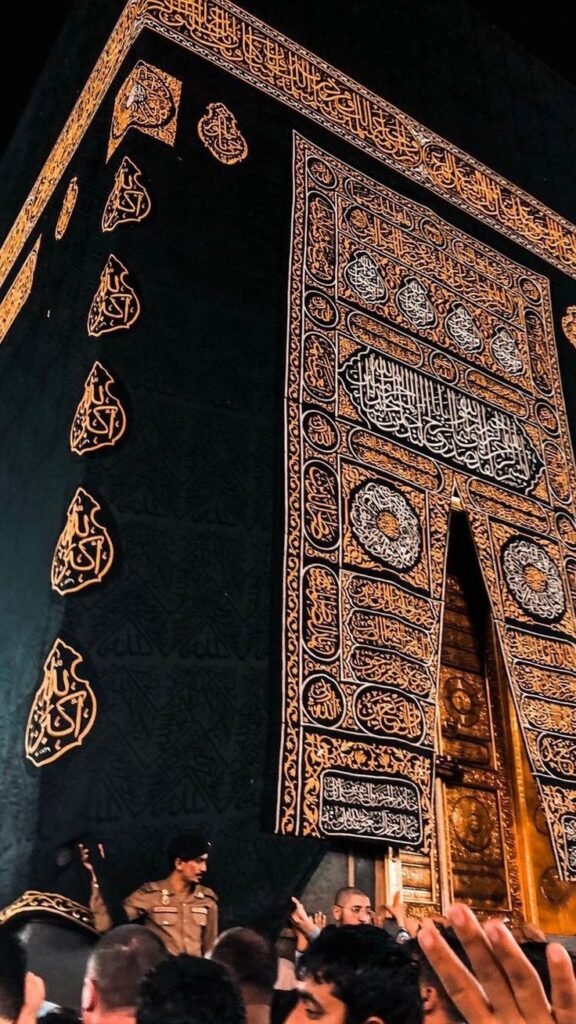Muslim communities worldwide deepen their doctrinal commitment to Salah because it represents their Islamic prayer through an outstanding ritual practice. The practice reaches further than ceremonial rituals. Malayan Muslims express their devotion while submitting to Allah through prayer to build spiritual relationships with their deity. Muslims have employed Salah for centuries to determine the spiritual relationship between their everyday activities and their commitment to disciplined conduct.
This study examines Islamic Salah by tracing its journey through time while explaining its core significance together with Islam's diverse prayer expressions. The analysis examines how the Prophet Muhammad (peace be upon him) taught its core concepts and elucidates the ritual's essential role in Muslim daily practice from ancient times to present. Muslim faith centers its fundamental essence on Salah because this ritual prayer practice establishes religious community bonds through sacred practices that continue to motivate Muslim practitioners in devotion.
Origin and Evolution of Salah
During Prophet Muhammad's time (peace be upon him) Salah emerged as a religious practice. Allah gave the Prophet (peace be upon him) his first revelation in 610 CE before instructing him to create Salah as the core practice of worship. Muslim prayer joined the Five Pillars of Islam which confirms its central role within the religion.
Allah revealed the first rules of Salah to the Prophet Muhammad (s.a.w.) through the divine miracle of Al-Isra’ wal-Mi’raj (The Night Journey). Allah instructed Prophet Muhammad (peace be upon him) through divine intervention that Muslims should perform daily prayers five times each day in a pivotal moment for the Islamic scriptures.
Through the ages Islam has adopted Salah as its fundamental religious manifestation which continues to protect its core identity across all cultures. Muslims observe Allah's rules by following specific timing patterns and body positions and religious phrases which work to unify diverse Islamic communities worldwide.
What is Salah? Understanding Its Essence
In Arabic the term "ṣ-l-w" forms the root which means "prayer" or "supplication" or "connection" leading to "Salah." Muslims perceive prayer as an immediate connection that links their personal soul to Allah.
Salah functions as essential duties throughout the life of someone who has faith. Through this ritual Muslims find both spiritual surrender and receive mental silence along with disciplined habits and ethical direction. Through their five required daily prayers Muslims develop a spiritual routine which continuously informs them about their divine obligation to worship and find pleasure in Allah.
During the act of Salah Muslims perform five body positions which express both authentic humility and unwavering devotion to Allah. Through the Quranic verse recitations of Salah Muslims express their understanding of Allah's universal power and benevolence.
Hajar Travels strongly appreciates the importance of Salah for pilgrims performing both Hajj and Umrah. A suitable environment to perform these prayers stands among our highest priorities throughout travel.
Types of Salah in Islam
Muslims practice various salah forms which function for unique life events and special purposes. Believers practice several types of Salah which we will examine in more detail below.
Obligatory (Fard) Salah
Every Muslim must perform the five daily prayers known as Salahs because they exist as Fard obligations. Muslims must perform five obligatory prayers known as Fajr (dawn), Dhuhr (midday), Asr (afternoon), Maghrib (sunset) and Isha (night). Minors can avoid these prayers only with genuine justification but failure to meet this requirement results in a major sin.
Through Fard Salah believers maintain their spiritual agenda while practicing self-discipline amidst daily commitments.
Voluntary (Nafl) Salah
Muslims perform various optional prayers called Nafl Salah beyond their required obligations. These ritual prayers bring spiritual merit to Muslims without any obligatory requirement. Through these voluntary prayers believers can get spiritually closer to Allah while building up good deeds that help strengthen their faith.
Muslims perform Nafl prayers by offering prayers such as Salat-ul-Duha along with Tahajjud and any voluntary devotions that suit their choosen schedule.
Sunnah Salah
The prayers follow the standard religious practices performed by Prophet Muhammad (peace be upon him). The Prophet Muhammad's (peace be upon him) practices have been separated into two types: Sunnah Mu’akkadah and Sunnah Ghair Mu’akkadah.
Muslim believers who follow the Prophet’s teachings perform the Sunnah prayers to enhance the obligatory ones within their spiritual practice. Before Fajr begins the Prophet Muhammad (peace be upon him) performed two voluntary Sunnah raka'at while four Sunnah raka'at followed Dhuhr and two Sunnah raka'at followed Maghrib.
Special Salah
For unusual events Muslims perform special prayers which include Eid Salah for the two Eid celebrations as well as Istisqa Salah for rain. Through special prayers Muslims connect as a community under unique spiritual and social situations.
The Role of Salah in Daily Life
Muslims experience transformative changes in their daily program as well as spiritual orientation through Salah. Though Muslims must pray five times each day they receive fixed moments which enable contemplation alongside thankfulness as well as a stronger connection with Allah.
Prayers throughout Salah connect Muslims to their inner thoughts while focusing their minds through the recitation of Surah Al-Fatihah. A believer's spiritual focus extends beyond prayer which results in enhanced direction and actions and world perspective.
The practice of Salah creates plural connections between believers. The religious practice of congregation prayer including Jumu'ah (Friday) service allows worshippers to unite physically and spiritually while dissolving all racial and financial and geographic boundaries.
Hajar Travels exists to provide spiritual depth to your spiritual travel experiences. Our travel programs for Hajj and Umrah include scheduling that protects prayer requirements for every trip.
Why Salah Is Central to a Muslim’s Faith
Among all forms of worship Salah stands apart because it contains somatic gestures with religious reverence and conceptual contemplation. Salah represents the essential foundation of Islam that means surrendering oneself to God.
Salah teaches believers to directly embrace Allah's sovereignty while acknowledging His divine mercy. Muslims maintain alignment with Islamic teachings in every repetition of their actions and thoughts and choices.
Through prayerful acts believers gain awareness of their responsibility to lead lives that are righteous. Every Salah ritual offers believers time to review both their successful moments and their mistakes and their aspirations toward spiritual growth.
Through our facilities Hajar Travels helps guests maintain their spiritual bond through prayer-supportive accommodations that maintain both comfort and reverence.
Embarking on a Journey of Prayer and Purpose
Salah exists as more than a ritual practiced by followers of Islam. This practice represents a total life philosophy. Through Salah practices our spirits grow stronger while our intellect receives training and our physical body achieves discipline. The practice connects Muslims across time periods while bringing people together through shared belief across national borders.
Taking time to devote proper respect to your Salah will allow you to feel its strong influence and strengthen your bond with Allah. The maintenance of this sacred connection across home or spiritual travel settings deepens every element of your existence.
Are you interested in boosting your religious experiences by taking the Hajj or Umrah travel journeys? We invite you to connect with Hajar Travels so we can handle your journeys from beginning to end with intention and religious depth.



